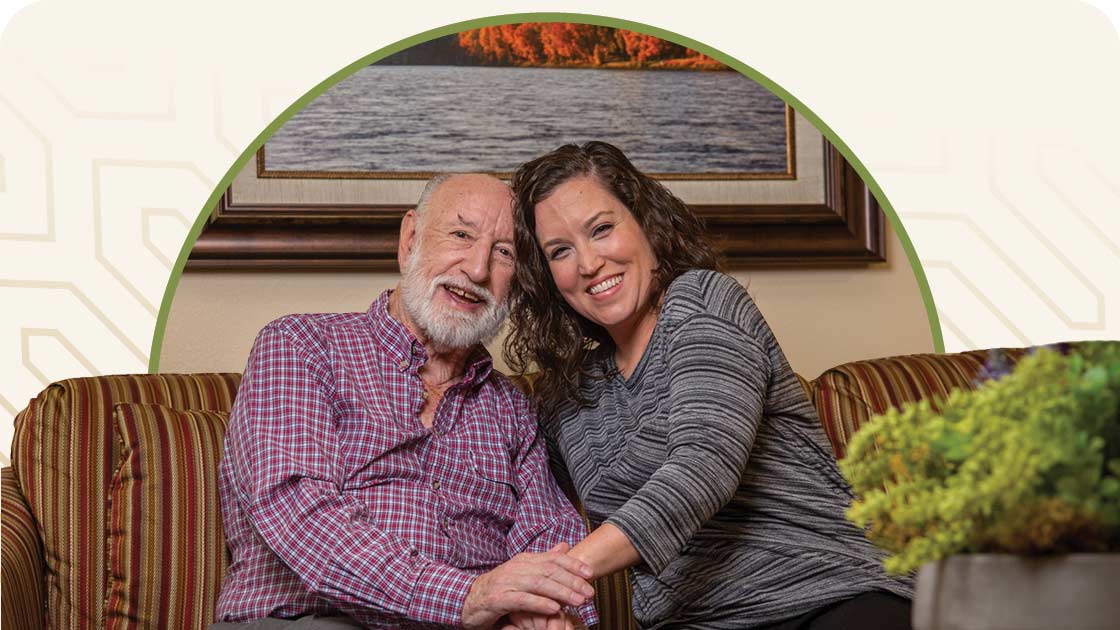Advance Planning for Your Future Health Care
For many of us, discussing our health is a touchy subject. And most of us don’t want to think about the possibility of a serious condition or illness occurring. That’s why only about a quarter of American adults have a plan for their future health care.
Health care planning for the future is a journey of proactive preparation, ensuring that your well-being remains at the forefront of your decisions. It’s a process that empowers you to navigate the complexities of health care with confidence, knowing that your wishes and preferences will be respected and honored. It’s a daunting task, but it need not be approached with fear. Think of it instead as an empowering opportunity to take control of your future health and care.
You’re probably asking yourself, Where do I start? This article is a great first step and will give you the groundwork for advance care planning (ACP). By assessing needs, exploring various care options, addressing legal matters, and seeking emotional and social support, you can make informed decisions to ensure a comfortable and secure future.
Statement of Fairness: Considering senior living options for yourself or a loved one? We’re here to help at every step. And even though we specialize in independent living communities, our goal is for YOU to find your best path to gracious retirement living, and part of how we achieve that is by providing reliable information on all types of senior living, not just the ones we offer. When our offerings serve as useful illustrations to a specific topic, you can find that information in the attached sidebar.
Disclaimer: This content is not intended as financial advice. Remember to review your plans and budgets with a licensed financial professional when making significant financial decisions.
What is Advance Care Planning?
Simply put, ACP is a process that helps you make decisions about your future medical care. It involves talking to your loved ones and your doctor about your wishes and then documenting those wishes in writing, called an advance directive.
Advance directives are legal documents that tell your doctor your wishes about your health care in the event that you are unable to communicate your wishes. It states your instructions and names a health care proxy, a person whom you trust to make medical decisions for you.
Why is Planning for Future Health Care So Important?
When your preferences are clearly documented in writing, health care providers and loved ones have a roadmap to follow, ensuring that your wishes are carried out, even if you are unable to communicate them directly. Without advance directive documents, state laws determine who makes medical decisions on your behalf.
That means that a family member could be responsible for making decisions about your health care. Making major medical decisions during a crisis can be emotionally overwhelming for your family and friends. They may face uncertainty about your wishes, struggle with conflicting emotions and feel pressure to make decisions that align with their own values rather than yours.
Consider an ACP as a thoughtful gift to your loved ones. By providing a roadmap, you’re sparing them the emotional burden of making difficult medical decisions during a crisis. ACP isn’t about predicting the future; it’s about ensuring your wishes are respected and your loved ones are supported.
Remember, it’s never too soon to start planning. The best time to begin is when you are healthy. Life comes at us with twists and turns, and knowing you have an advance care plan in place will give you and your family peace of mind.
How Do I Plan for Future Health Care?
The answer lies in answering three fundamental questions:
- What are my values and goals for my future care? Reflect on your values, beliefs and aspirations for your future well-being. Consider what kind of care you envision for yourself, whether it’s maintaining independence, prioritizing comfort or receiving specialized treatment. What kind of medical treatment would you want if you became seriously ill and unable to express your wishes?
- What are my current and potential health needs? Assess your current health status, including any existing medical conditions, medications and limitations. Talk to your doctor about potential health concerns that may arise and how they might impact your care needs. This understanding will help you identify appropriate care options and support systems.
- Who do I want to put in charge to make sure my wishes are carried out if I am unable to do so? This takes reflection and discussion with family members and professionals. Once you’ve made your decisions, you’ll formalize them in two ACP documents: an advance directive and a medical power of attorney.
Step-by-Step Advance Care Planning
- Decide on your future care by reflecting on your values.
- Think about who you would trust to make medical decisions if you are unable to do so yourself.
- Talk with your doctors about your ACP.
- Create an advance directive (also known as a living will).
- Name a person as medical power of attorney to make health care decisions on your behalf.
- Give copies of your advance directive to your medical power of attorney, doctors and other family members.
- Review the document often and make changes if needed.
Who Should Be Involved in My Future Health Care Planning?
Talk to people you trust. Involving the right people in your future health care planning is crucial to ensure your wishes are respected and your care aligns with your values and preferences. Your primary care physician, specialists and other health care providers are invaluable resources for advance care planning. They possess a deep understanding of your medical history, current health status and potential future needs. Engage in open and honest conversations with them to discuss your values, preferences and treatment options, ensuring that your advance care directives align with your health care goals.
It can also include:
- Family members
- Spouse
- Religious leaders
- Friends
- Legal professionals

How Can I Plan for Future Medical Conditions?
Age, lifestyle, diet, activity level and family history play a role in your health.
- Get regular physicals and checkups.
- Discuss your health risks with your doctor.
- Many medical conditions run in the family. Genetic testing can identify whether you share the same traits.
With that knowledge and by speaking with your doctor, you’ll gain insight into what your health care needs might be.

Exploring Care Options
At the heart of ACP lies a deep reflection on your values and beliefs. What matters most to you in life? What kind of quality of life do you envision for yourself? These questions serve as your compass, guiding your decisions as you explore various care options. Based on your values, would you want:
- CPR (resuscitation) if your heart stops beating?
- To be put on a ventilator or other artificial life support if you could no longer breathe on your own?
- A feeding tube if you can no longer swallow?
- Palliative care focusing on pain control instead of aggressive treatment and medication?
- To be sent to a hospice rather than a hospital for end-of-life care?
Your advance directive will also state whether you want to be an organ or tissue donor or give your body to a medical school or research institute. Remember, these are personal choices, and there are no right or wrong answers. The key is to have open and honest conversations with your loved ones and health care providers, ensuring that your wishes are known and respected.
What Legal Documents Do I Need?
Advance Directive. Your advance directive or living will contains the answers to the questions above. It lets doctors know what medical treatments you want and which ones to avoid. You can specify conditions when these treatments should or should not be used.
Medical Power of Attorney. A crucial component of ACP is the designation of a medical power of attorney (MPOA), also known as a health care proxy or agent. This legal document allows an individual (referred to as the “principal”) to appoint someone they trust to make medical decisions on their behalf if they become unable to communicate or make decisions for themselves.
The appointed agent acts within the scope of authority outlined in the document, covering aspects such as surgery, medications and end-of-life care. Activation of the MPOA occurs only under specific conditions when the principal is unable to do so. Regular communication between the principal and the agent ensures that medical decisions align with the individual’s preferences. The MPOA, a legally binding tool, provides individuals with the assurance that their health care choices will be respected even in times of crisis, offering clarity and control in the face of medical uncertainties.
What Resources Can Help Me Make Advance Care Planning Decisions?
Harvard Health Publishing offers a free downloadable guide to advance directives, living wills and other strategies for communicating health care preferences. You’ll also find forms for medical power of attorney, health decisions worksheet and a generic living will (advance directive).
The National Institute on Aging also offers numerous free resources to help with advance care planning, including worksheets, guides and checklists. You can get advance directive forms from:
- Local Area Agency on Aging
- State Attorney General’s Office
- AARP
- American Bar Association
- Local Veteran’s Affairs (VA) Office (specific to veterans)
Update Your Plans Regularly
Advance directives are living documents that should be reviewed and updated regularly to reflect any changes in your health, circumstances or preferences. As your life unfolds, revisit your decisions and ensure your advance directives remain consistent with your evolving wishes.
Take Control and Gain Peace of Mind
Advance care planning empowers you to take charge of your medical decisions and ensure that your wishes are respected. It’s a journey of proactive preparation, allowing you to align your care with your values, preferences and quality of life aspirations.
Remember, you’re not alone in this process. Reach out to your health care team, family members, and trusted advisors for guidance and support. Take advantage of the resources available to you, engage in open and honest conversations, and make informed decisions that reflect your true self.

By creating an advance care plan, you’re not just planning for the future; you’re safeguarding your autonomy, ensuring peace of mind for yourself and your loved ones, and shaping your health care experience with clarity, control and dignity.
DID YOU ENJOY WHAT YOU JUST READ?
Join our exclusive community and subscribe now for the latest news delivered straight to your inbox. By clicking Subscribe, you confirm that you agree to our terms and conditions.
Every day brings more joy at Osprey Heights

Discover what active independent senior living in Valrico, Florida, is all about. Three made-from-scratch meals served every day. A calendar filled with fun, interesting events and activities. A Resident Travel Program that invites you to visit over 70 communities across the U.S. All included in your monthly rent.
Have a look at our newsletter to see what we’re up to this month.
Stay active in the community
you love at Pioneer Ridge

Welcome to independent senior living in McKinney, Texas. Our active social community is in a quiet neighborhood near retail stores, churches, care services and more. Our convenient transportation services will get you where you want to go.
And when you’re at home in Pioneer Ridge, there’s still plenty to do with excellent dining and daily activities.
We’ll be happy to show you around.


Frequently Asked Questions:
What is advance care planning, and why is it important for seniors?
Advance care planning (ACP) is the process of making decisions about your future medical care, including the types of treatments you would want or not want if you become unable to communicate your wishes. It involves having open conversations with loved ones and health care providers, and documenting your preferences in legal documents called advance directives. ACP is important because it ensures your wishes are respected, reduces stress and uncertainty for your family, and helps you maintain control over your health care decisions even if you’re unable to speak for yourself.
What documents should I have as part of my advance care plan?
The two key documents in advance care planning are an advance directive (or living will) and a medical power of attorney (also called a health care proxy). The advance directive outlines your treatment preferences, while the medical power of attorney designates a trusted person to make health care decisions for you if you’re unable to do so. It’s important to complete these forms, share copies with your health care providers and loved ones, and review them regularly to reflect any changes in your wishes or health status.
When should I start advance care planning, and who should be involved?
It’s best to start advance care planning while you are healthy and able to make decisions, rather than waiting until a crisis occurs. Involve your primary care physician, specialists, family members, and any other trusted individuals in the conversation. These discussions help ensure everyone understands your values and preferences, and that your advance care plan truly reflects your wishes for future medical care.
FIND YOUR COMMUNITY
Related Articles
STORIES, INSIGHTS & RESOURCES
As you and your loved ones navigate the exciting opportunities retirement presents, thoughtful planning is key. Stay informed with empowering articles for seniors covering health, lifestyle, finance and more.




Chronicles Of The Heart
RESIDENTS SAY INDEPENDENCE IS A TOP PRIORITY
Below, residents explain how much they appreciate the freedom they experience at our independent living community. It’s empowering to continue to make your own decisions, and you’re free to create your day around your personal interests.


